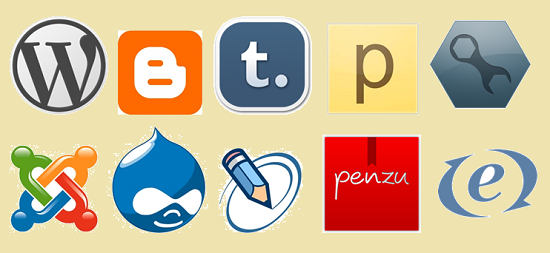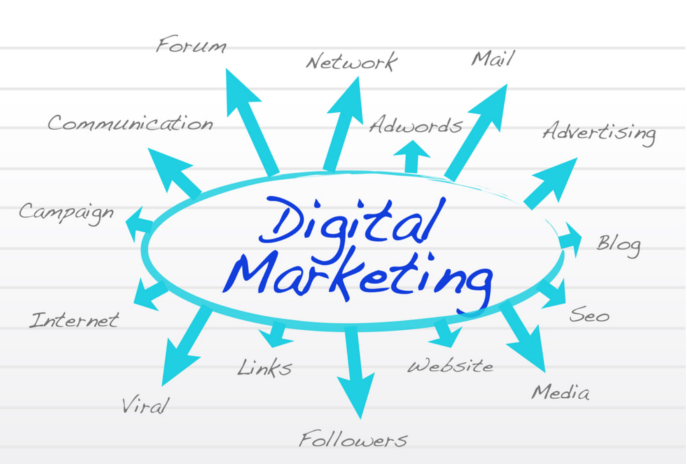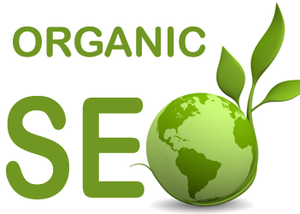Back to Basics #8: Social Media Trends: Do Small Businesses Need to Keep Up?
/ Small business owners: Are you tired of hearing about the importance of social media? Have you started up a Facebook page or Twitter account and decided that it’s just too much effort for too little payoff? Well, you’re not alone. Many small business owners feel that social media trends don’t offer a lot for their companies—what’s popular today might be gone in a couple of months, after all. And who wants to spend a lot of time building up a following just to find out that there’s another new social media network out there?
Small business owners: Are you tired of hearing about the importance of social media? Have you started up a Facebook page or Twitter account and decided that it’s just too much effort for too little payoff? Well, you’re not alone. Many small business owners feel that social media trends don’t offer a lot for their companies—what’s popular today might be gone in a couple of months, after all. And who wants to spend a lot of time building up a following just to find out that there’s another new social media network out there?
Unfortunately, you still need to be harnessing the power of social media. Even if you don’t keep up to date with social media trends, you will find that there are certain staples that are here to stay—at least for a few years. And that’s plenty of time for you to invest in your followers and customers to make sure they connect with your company.
The number of small businesses jumping on board with social media trends is only growing.
Did you know that…
- 88% of small businesses use LinkedIn.
- 84% of small businesses use Facebook.
- 74% of small businesses use Twitter.
- 58% of small businesses use Google+.
(statistics taken from HeidiCohen.com)
And the numbers are only growing. Many small business owners who haven’t begun social media marketing yet say that they plan on implementing a strategy within the next year. Those who already have often say that they want to step up marketing efforts and track results more carefully. If you’re in the former camp, check out our articles to learn more about what social media is, and how to develop effective social media marketing strategies on a small business budget.
Text and photos aren’t enough anymore—you need to try out videos.
Another one of the top social media trends for small businesses is the growing usage of YouTube. Companies are happily producing their own visual content for their customers. According to a small business survey conducted by Verticalresponse.com, 35% of the small businesses they surveyed said that they used YouTube as a part of their regular marketing efforts. With the number of free video creation programs available on the internet now, it’s become much easier for even the most non-artistic person to make informative, engaging, and SEO-friendly videos. You can actually have a lot of fun creating videos for your customers—think of them like visual blog articles. You can talk about a variety of subjects relating to your industry. For blogging ideas, check out our article here and apply some ideas to your video content. The videos don’t have to be stiff and “corporate” in appearance--you can make them as unique as your company.
But what about the competition? How do you keep up?
Yes, it’s true that your competition will likely be using social media just as you are. And it’s also true that as people join social media sites, you'll have more competitors. You'll be competing not only for business, but for your content to even be seen in the first place! Think about it: If the average Facebook user has, say, 300 friends, how many posts do you think they’ll see in a day? A lot. Now think of all the companies they’ve “liked”. There’s going to be a lot of competition to be seen on their news feed.
Unfortunately, as the user base for social media sites grows, the competition levels get continually tougher. And usually the only way around this is to start paying. You can pay for ads to be placed on a target demographic’s page, or you can “boost” your posts to make sure they stay on top of a news feed. You’re certainly not forced to do this by any means—but remember this as time goes on.
Whether you’re new to social media or you’ve been working on it for years, there’s no way around it: small businesses must stay on top of social media trends if they want to see organic growth online. This isn’t to say you must spend 24 hours a day on social media; however, with regular updates and time investment, you’ll see your engagement growing and your efforts paying off.
And if social media trends are just too much for you to handle right now...
If you need help managing your social media accounts, visit Internet Local Listings and take a look at our internet marketing packages. We’ll be happy to help you get whatever you need to be seen online--whether it's social media, a new website, or local business listings!





























